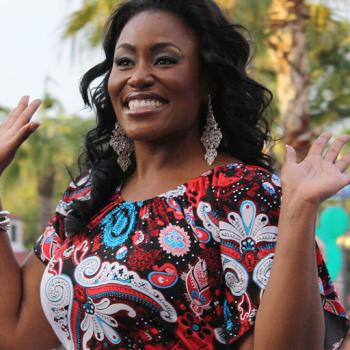Last week, I posted some helpful responses to the court’s recent disastrous decisions on gay “marriage.” Unfortunately, I’ve also heard reactions from people who still think of themselves as coming down on the conservative side that could stand to be refined. What I specifically want to focus on today is the notion that we conservatives need to be super-careful to separate our opposition to gay “marriage” from being generally “anti-gay” (whatever this means, exactly). The idea is that it’s “unhelpful” and/or “divisive” to zoom out of this very narrow focus and begin addressing the larger sexual issues surrounding the marriage debate. I’m going to argue that this is pretty much impossible.
This is not just about gay “marriage.” This is about everything that constitutes “being gay” in the popularly understood sense of the word. This is about the entire cornucopia of romantic activities that are marriage’s natural precursors in a heterosexual context. We could easily come up with a list of things that may be sweet, innocent and even cute in that context while entirely off-limits in a homosexual context. How about:
youthful crushes
Valentines
ballroom dancing
hand-holding
kissing
dating
love songs
“noticing”
Let me pause to unpack that last one a bit more. While it’s true that there’s ultimately a sexual undercurrent to the fact that men and women tend to “notice” each other, I think we can all agree that there’s “noticing” and then there’s “noticing.” A girl can titter over a picture of Ryan Gosling without dreaming of getting pregnant by him, though obviously if she strays into the latter, she needs to stop and re-think. An honorable man can respectfully note that a girl is pretty without indulging sexual desire for her, though of course if a man’s natural desires take the form of out-of-control lust, he must take steps to curb them. Men and women are naturally wired to be attracted to each other, so of course we “notice” each other in something more than detached appraisal (as when heterosexuals acknowledge attractive members of the same gender). But merely appreciating feminine beauty in a distinctly masculine way (or vice versa) is not a sign that something’s wrong. When pursued biblically and wisely, it can lead to joyful, sanctified consummation. Yet there is no parallel category when it comes to homosexuality. Any kind of “noticing” is a sign that something’s wrong. While it’s highly controversial to say so, this is a consideration that should have an effect on a homosexual’s freedom of interaction in society.
For example, homosexuals have a duty to society not to trumpet their orientation wherever they go, e.g. by openly showing affection in public, expressing their attraction to members of the same gender, or deliberately behaving in a way that’s designed to provoke people by virtue of its “gayness.” There’s a reason why we feel it “in our gut” when we see a same-sex couple kissing, etc. in public. Recently I heard Todd Friel of Wretched Radio relate a personal anecdote about a lesbian couple who was doing just that in an airport. He threw out the question of why we respond in such a visceral way to this sin but not to most others. I wrote to their “ideas” address with the following answer (which Todd seemed to appreciate a lot when he wrote back to me).
It seems to me that another way of phrasing the question is “Are all sins equally bad, or are some sins worse than others?” I’m not sure whether this is a Reformed vs. non-Reformed thing, but it seems the traditional Reformed response would be that all sins are equally bad. My own response would be that they’re not, and I think there are some biblical texts you could go to that would support that conclusion. But let’s just narrow it down to the realm of heterosexual sin for a moment. Is it equally sinful for a young couple in love to commit fornication and for a man to repeatedly cheat on his wife with multiple women? I don’t think so. To be sure, fornication is a very serious sin, and the couple who commits it needs to repent. But I think the serial adulterer has committed an even greater sin. Not only is he having sex outside of marriage, he’s breaking an existing marriage covenant. A reader of this site gave me a helpful way to think of this a while ago, by creating a little table: Sex outside of marriage? Check. Breaking marriage vows? Check. You’ve got two check marks there, but only the first box is “checked” for the fornication only. And it’s different yet again if you’re talking about emotionless hook-ups. I believe coldly hooking up with whomever is a worse sin than committing fornication with one person whom you truly love. Once again, this is NOT an excuse for fornication under any circumstances! I’m just saying that while both are sins, you really can measure these things on a scale of evil, a scale of danger.
This is what the “sin is sin” crowd, who can no more see a problem with introducing young children to the idea of homosexuality than heterosexuality, are at some level failing to grasp. Sure, they acknowledge that one shouldn’t provide graphic details. But the mere notion that “boys sometimes like other boys” or “girls sometimes like other girls?” Well, that’s just another fact of life that we shouldn’t bother hiding from our children. This is deeply misguided. Children’s innocence should be protected as long as possible. And if you say, “Well, good luck with that when it’s in the schools and all over TV,” then perhaps that’s just one more reason not to have television or send children to public school.
So, should Christians be “anti-gay?” In a manner of speaking, yes. No, we should not follow the example of the Fred Phelps crowd and go around holding signs saying that God hates [insert gay slur here]. But we should resist every possible attempt to normalize homosexual attraction, including in our theology. And we need to be clear-eyed about the progress of the homosexual agenda in America and all it entails, working to protect our children from it until they are mature enough to understand its implications.












